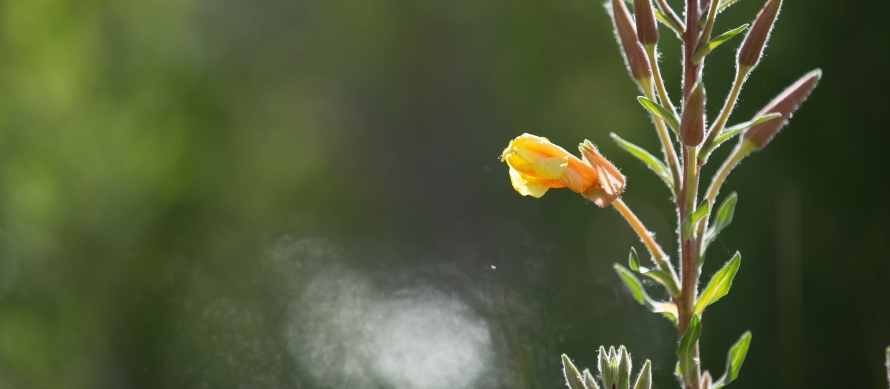Keep an eye out for mice or mouse droppings in your units, and let us know if you see evidence of mice, and we will set traps. If you see mouse droppings, spray the area with the bleach solution (in your cleaning supplies) before cleaning the area. Mice are known to carry Hantavirus, which can be transmitted to humans when fresh feces are stirred up, and the virus becomes airborne. Please refer to the Hantavirus fact sheets in the residence binders for more information.
Although ticks are not very common at our elevation, they have become more common in recent years as the climate has warmed. Ticks can transmit a variety of diseases, including lyme disease. Please see the fact sheet in the residence binder for more information. Wear tick repellent and check your body for ticks every day. See a doctor if you develop a bulls-eye rash, fever or severe joint pain after being bitten by a tick.
Mosquitos can transmit a variety diseases including west-nile virus. The best protection is to prevent yourself from being bitten by mosquitos. Cover your skin, especially in the evening, and use mosquito repellent.
Information on Hantavirus
A strain of Hantavirus has recently been found in the deer mouse (Peromyscus maniculatus), the most common mouse in this region. The disease caused by this virus is called HARDS which stands for Hantavirus Acute Respiratory Distress Syndrome. The virus is one of a family of viruses carried by rodents and communicable to humans.
In response to this concern, the University is making every effort to reduce and avoid contact between users of the reserve and mice. However, this effort requires assistance from you, the reserve users, and we are requesting your help and cooperation, especially by complying with the suggested risk reduction and cleanup guidelines.
The program has three components:
- Reducing food, water, and refuge in and adjacent to the buildings.
- Reducing mouse ingress, egress, and access to the buildings.
- Reducing mouse populations in the buildings by trapping.
Although it is probably impossible to completely eliminate mice from the old, seasonally occupied buildings, this program should result in reduced exposure for our users and staff.
Risk Reduction Guidelines
Do not feed any wild animals. Viruses and diseases are often passed through saliva; to reduce your chances of being bitten, avoid contact with wild animals. Infected mice may not show any symptoms of these diseases.
Keep food and drink in rodent-proof containers. Confine food to the kitchen and dining areas, not in your bedroom, lab, etc. Mice are most active at night, therefore put food in rodent-proof containers, refrigerators, or cabinets. Keep doors closed to cabinets and buildings, especially at night.
Keep kitchen and dining areas as clean as possible. Put food and dishes away in closed cabinets at night. Clean counter tops and do not leave dishes out overnight in sink drainer. Place trash and food garbage in closed garbage containers and keep lids on them.
Report any signs of rodent infestations to the reserve director.
Clean up of mouse soiled areas:
1. Special precautions are necessary when signs of mice are present, especially feces, urine, and nest materials. Dry clean-up (sweeping, vacuuming) is not permitted as this aerosolizes particles that may be inhaled. Proper clean-up entails:
- Wearing rubber gloves.
- Wetting the entire area with disinfectant.
- Wet-mopping with disinfectant or wiping up the area with paper towels
- Bagging the towels and disposing of them in the trash.
- Disinfectant may be household bleach (1 to 4 parts water), Lysol, or other recommended solutions.
- If the area is extremely soiled, notify reserve staff for clean-up advice.
2. Trapping and removal of trapped mice should be done by reserve staff unless authorized by reserve director. Appropriate precautions and guidelines must be followed.
Symptoms of Hantavirus infection:
HARDS first manifests itself as mild flu-like symptoms (muscle ache, slight fever, and lethargy), usually two to six weeks after exposure to the virus. Acute respiratory distress may follow. If you experience flu-like symptoms and believe you may have had contact with rodents within the last 30 days, contact your physician immediately or go to the emergency room at the hospital in Mammoth Lakes.
More detailed information concerning Hantavirus is posted at the reserve field station or you may contact the reserve director. If you follow these guidelines of Universal Precautions and basic practices of cleanliness you should have minimal exposure to the virus and a very limited likelihood of contracting this disease from your visit to VESR.
HANTAVIRUS BROCHURE (from California Department of Health Services)


